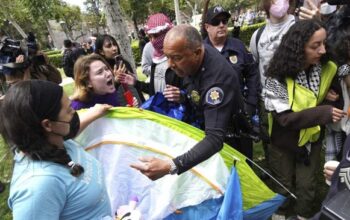This could be the Prop. 13 of our generation.
“Atop a November 2024 ballot already teeming with contentious propositions, a new initiative qualified this week that might be the biggest doozy of them all: A proposal to hobble the ability of state and local governments to raise taxes.
In the spirit of California’s 1978’s tax revolt, the proposed constitutional amendment would require the Legislature to put any new statewidetax up for a popular vote. Local governments would have to do the same. Other fiscal tighteners include expanding the definition of what a “tax” is and requiring all local taxes raised for a specific purpose to win a two-thirds majority, undoing a series of recent state Supreme Court rulings that loosened that rule.
Thjis does not “hobble” government. It empowers the citizens and voters—takes away the special interests ability to steal from us. The California budget has DOUBLED in ten years—yet our increased spending has made problems worse, not better. Give taxing power back to the people. Prop.13 saved our homes. This measure will save our State.

WhatMatters, 2/3/23
Atop a November 2024 ballot already teeming with contentious propositions, a new initiative qualified this week that might be the biggest doozy of them all: A proposal to hobble the ability of state and local governments to raise taxes.
In the spirit of California’s 1978’s tax revolt, the proposed constitutional amendment would require the Legislature to put any new statewidetax up for a popular vote. Local governments would have to do the same. Other fiscal tighteners include expanding the definition of what a “tax” is and requiring all local taxes raised for a specific purpose to win a two-thirds majority, undoing a series of recent state Supreme Court rulings that loosened that rule.
California Business Roundtable, an advocacy group that represents the state’s biggest businesses, is the public face of the campaign — though much of its funding has so far come from major real estate firms.
Opponents, which include advocates for local government and organized labor groups, have responded to the measure like a declaration of war.
- Marcel Rodarte, executive director of the California Contract Cities Association: “This measure could cause irreparable harm to a city’s ability to provide essential services to its residents. This measure is a wolf in sheep’s clothing.”
They say it’s a wolf that looks like one pitched in 2018 by the Business Roundtable, with the financial backing of the American Beverage Association. Those proponents ended up pulling that measure, but only after the Legislature agreed to pass a 13-year ban on local soda taxes. Irate lawmakers likened the maneuver to “extortion” and a “nuclear weapon.”
Is there a similar strategy in the works this time around? Pointing to the heavy real estate industry backing, Los Angeles Times columnist Michael Hiltzik suggested that a narrow ban on a particular property development tax might be the ultimate target.
But Rob Lapsley, president of the California Business Roundtable, said the soda deal was “never intended as the strategy” in 2018 and he denied that proponents this time have any ulterior motive.
- Lapsley: Voters “want the opportunity to have the final say on future taxes…We would not have introduced it if we weren’t intent on going full speed ahead to pass this.”



